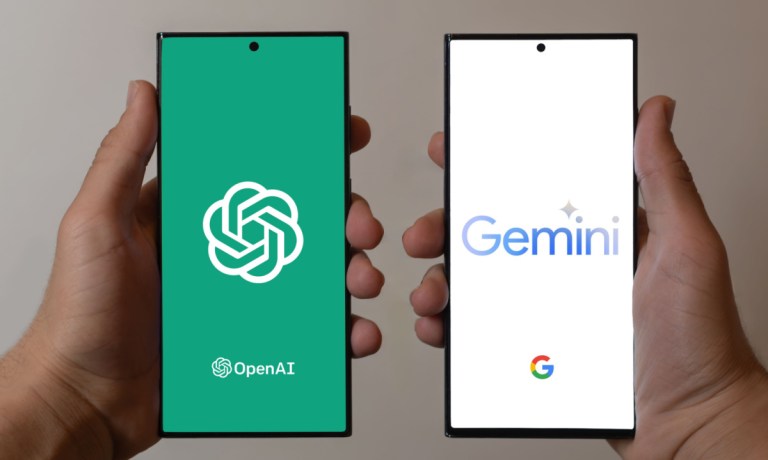Google’s long-awaited Gemini AI model was finally released on Wednesday (Dec. 6), and the model — which Google is hoping will put it at the front of an ongoing AI arms race that for much of the past year has been dominated by OpenAI — is, well, another AI model that can combine text, images and audio to answer a wide range of queries.
Benchmarked against OpenAI’s ChatGPT, Gemini does better on 30 of 32 standard performance measures, per a Google DeepMind research paper, including 10 of 12 popular text and reasoning benchmarks, 9 of 9 image understanding benchmarks, 6 of 6 video understanding benchmarks, and 5 of 5 speech recognition and speech translation benchmarks.
“Every technology shift is an opportunity to advance scientific discovery, accelerate human progress, and improve lives. I believe the transition we are seeing right now with AI will be the most profound in our lifetimes, far bigger than the shift to mobile or to the web before it,” said Google and Alphabet CEO Sundar Pichai.
“This new era of models represents one of the biggest science and engineering efforts we’ve undertaken as a company,” Pichai added.
But Gemini’s performance upgrades all beat OpenAI by a slim margin — often just a percentage point or two — and are a far cry from the apocalyptic tales of AI’s yet-to-be-realized capabilities circulating after OpenAI’s own recent drama.
Advertisement: Scroll to Continue
For the average user, the incremental improvements may not be that noticeable, much less serve to move the needle in a significant way.
As Meta tests new AI experiences across its portfolio of platforms, Apple quietly releases an open-source framework called MLX to build foundation models, and the Amazon-Anthropic partnership heats up, perhaps the most interesting thing about Gemini is Google’s fixation on measuring the new foundation model almost exclusively against OpenAI’s ChatGPT.
Read also: End of an Era at Google DeepMind Hints at New Future for AI
Solving for Sophistication While Protecting Capability
Demis Hassabis, CEO and Co-founder of Google DeepMind, calls Gemini “the most capable and general model we’ve ever built.” The new model represents Google’s strongest push yet to retake the lead in an AI race that it helped start.
The model comes in three varieties: Ultra, Pro and Nano, each tailored to different use cases.
“It’s a platform. AI is a profound platform shift, bigger than web or mobile. And so it represents a big step for us,” Pichai said.
Gemini Nano is designed to run on devices inside the Android operating system, including Google’s newest Pixel phones, while the Pro version of Gemini is designed for developers and businesses who can access the model starting Dec. 13.
Gemini Ultra, the most powerful of the three model varieties, has yet to be released — with its launch set for early next year following extensive trust and safety checks.
Google has repeatedly pointed to concerns around reputational damage and safety issues surrounding AI as a reason for being slower than its rivals in bringing AI products to market.
Gemini itself is being released in a staggered manner, starting with English-only integration across Bard, Google’s existing AI chatbot, and within Pixel devices.
“In the coming months, Gemini will be available in more of our products and services like Search, Ads, Chrome and Duet AI,” the company said.
All three of the Gemini models will be available to Alphabet’s enterprise customers.
See also: It’s a ’90s Browser War Redux as Musk and Meta Enter AI Race
A Wholly-Owned AI Model
Despite the appearance that Google is chasing after its other tech rivals, the Mountain View tech giant is winning the AI race in an important way: Google has repeatedly proven that it can build state-of-the-art AI completely in-house.
In comparison, Microsoft is almost entirely beholden to its partnership with OpenAI for its own AI ambitions, while Amazon relies on similar — and growing — ties with AI startup Anthropic.
And while more than three-quarters (77%) of retailers rank generative AI as the most impactful emerging technology, and PYMNTS Intelligence reports that more than 8 in 10 business leaders (84%) believe generative AI will positively impact the workforce, the most bleeding-edge models like Gemini Ultra and ChatGPT-4V may be overkill for most current enterprise use cases.
That’s because most businesses aren’t looking for jack-of-all-trades-master-of-none models. They want AI systems that can leverage domain-specific and enterprise-specific data stored on air-gapped corporate servers to help enhance and optimize their workflows.
After all, even a slight incremental value-add in enterprise applications can create competitive differentiation and help accelerate profitability.
For further reading on choosing the best AI solution, the PYMNTS Intelligence “Generative AI Tracker®,” a collaboration with AI-ID, sorts the myths from the realities of AI and explains how businesses can leverage AI technology wisely and effectively.
For all PYMNTS AI coverage, subscribe to the daily AI Newsletter.

